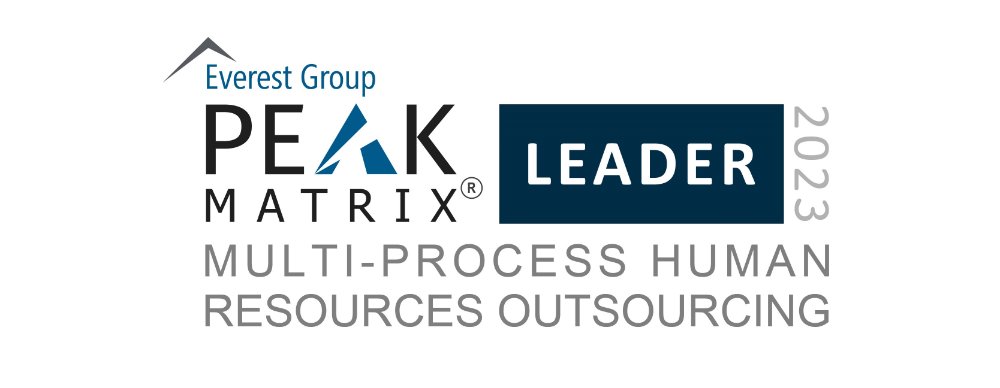
Unleash the potential behind indicators and metrics: better decisions, improved employee performance, efficient strategies, satisfied workforce.
The benefits of HR Analytics have been widely documented and discussed in recent years. Studies show that, in today’s rapidly evolving business landscape, organisations must be ready to rethink and revise their operations, and employee metrics analysis has become an essential tool in helping organisations improve their processes, productivity and performance, while also driving better business decisions, both within HR and across other areas of the company.
But HR Analytics is not just about performance. Employee metrics can also be used to measure employee wellbeing and satisfaction, offering insight into contributing factors such as salary, job quality, workplace environment, company culture, and career development programs. Many companies, however, remain unaware of the opportunities they are losing by not studying this information—which, on many occasions they don’t even know they have—which can be essential in helping companies improve their HR policies and practices.
Let’s examine the impact and benefits of HR Analytics and see how this tool can help companies improve their performance and boost employee satisfaction, while also touching on some of the competitive advantages it provides.
Benefits of implementing HR Analytics in your organisation
1. Improve employee performance
Employee metrics analysis helps companies boost employee performance by providing insights into their skills, experience, and motivation, identifying where they can improve, and providing them with the tools and resources they need to achieve their goals.
According to The State of Data: Unleashing the Potential of HR Analytics, a collaborative research study conducted by Alight and WHU-Otto Beihai School of Management:
- 64.5% of surveyed professionals agreed that data analytics would help them acknowledge good employee performance
- 60.7% recognise that it would improve the transparency of employee contributions
These insights can be used in the formulation of various HR campaigns and medium and long-term strategies.
2. Improve employee satisfaction
While many organisations limit their analysis to employee productivity and gross cost, employee satisfaction is one of the main indicators of a company’s success. Though perhaps not apparent on a day-to-day basis, external factors such as work environment, company culture, and quality of work can have a significant impact on employee performance. This is further complicated by the different generations of employees—and their differing needs and expectations—coexisting in organisations today.
Objective identification and analysis of these factors can aid in the design and creation of job offers, conciliation campaigns, loyalty benefits, and other employee satisfaction initiatives.
Employee satisfaction is, of course, closely linked to employee commitment levels, and HR Analytics can similarly help companies understand what motivates employees, allowing them to adjust, adapt, and even transform policies to encourage and inspire their employees to feel more committed to their work.
3. Improves efficiency
KPIs can also help companies improve efficiency by detecting areas where employees are being less productive. While many organisations collect this information regularly, it often ends up being archived. But metrics such as downtime, reaction time to problems, and the amount of time it takes to complete tasks can all be analysed and used to improve employee productivity.
Similarly, this analysis can be used to pinpoint areas where inefficient or manual processes can be streamlined or automated, giving employees more time to perform other higher value activities.
Studies show that data-driven analysis can increase business efficiency by as much as 11.6%.
And let's not fall into the traditional trap: improving the efficiency of a company is not incompatible with the high costs associated with implementation.
4. Improve decision making
With increasing frequency, online studies are published detailing how HR analytics can help organisations make better decisions. Confident decision-making is easier when real-time, visually impactful information on issues such as salary, work environment, company culture, and professional development programs is readily available. By providing organisations with the ability to condense the extremely complex data surrounding employee performance into clear and cogent reports, HR analytics allows reliable conclusions to be quickly and easily drawn.
This leads, not only to better decisions, but improved policies and practices from Human Resources as they are able to monitor the pulse of a heterogeneous, international workforce in real time.
Most HR professionals take a positive view of data-driven decision-making, with nearly three-quarters favouring the creation of specialised data-analysis roles to help drive decision-making within the company.
Any area of potential concern - incentive design, employee retention, hiring, performance management, etc - can be globally analysed revealing where improvements can be made. The value added is calculable, measurable, and therefore tangible.
Conclusion
The benefits are numerous. The competitive advantage is obvious. By providing organisations with a better understanding of what shapes a positive employee experience and identifying those areas where their workforce can perform better, HR Analytics helps companies boost employee performance, increase employee satisfaction, improve efficiency, and make better and more confident decisions.


